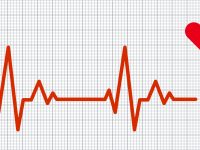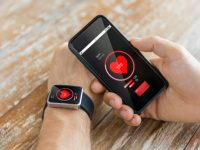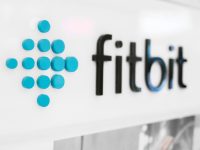Fitbit has taken the physical activity wearable market by storm, selling over 20 million fitness devices as of March 2015. With spots in over 45, 000 retail stores, in more than 50 countries worldwide, it’s safe to say the wristbands are pretty popular. And rather widely used. Perhaps not ALL of their owners use them, but many people do rely on their Fitbit to analyze their daily activity, track their habits and take stock in order to better care for their overall health.
So, if they’re so important, the devices must work really well, right? What if you heard the amazingly popular wristband was often inaccurate?
Fitbit says this isn’t true. The company says their fitness trackers have rigorous research behind them, and are kept on track by continual internal testing.
According to a company statement quoted on inquisitr.com,
“Fitbit’s research team rigorously researched and developed PurePulse technology for three years prior to introducing it to market and continues to conduct extensive internal studies to test the features of our products. Fitbit Charge HR is the #1 selling fitness tracker on the market, and is embraced by millions of consumers around the globe.”
But an in depth study conducted by researchers earlier this year at California State Polytechnic University, Pomona, found quite the opposite to be true. The study results showed the devices can actually be quite inaccurate in measuring heart rates during exercise, and the more intense the workout, the greater the discrepancy in data collected.
Fitbit publicly discounted the study, calling it “baseless” and “nothing more than an attempt to extract a payout from Fitbit.”
In a statement issued in response to the study, the company said:
“What the plaintiffs’ attorneys call a ‘study’ is biased, baseless, and nothing more than an attempt to extract a payout from Fitbit. It lacks scientific rigor and is the product of flawed methodology. It was paid for by plaintiffs’ lawyers who are suing Fitbit, and was conducted with a consumer-grade electrocardiogram – not a true clinical device, as implied by the plaintiffs’ lawyers. Furthermore, there is no evidence the device used in the purported ‘study’ was tested for accuracy.”
Was it a staged stunt for payout or a full of true findings? It’s hard to say. Regardless, the data collected by Cal Poly Ponoma might be something to consider before joining the millions, if you haven’t already.
The study analyzed data from both the Fitbit Charge HR and the Fitbit Surge by comparing hundreds of thousands of heart rate readings to a time-synced electrocardiogram.
According to inquisitr.com, the study found that when comparing the results of the time-synced electrocardiogram with the data collected by the PurePulse heart rate monitors in the Surge and the Charge HR, the data collected by the Fitbits was sometimes off by up to 20 beats per minute.
The study indicated there were also occasional inconsistencies between the two Fitbits, and even worse, sometimes no heart rate data was collected at all.
Barring the batteries being absent, it could be insightful to review the researchers’ opinions. They stated that: “The PurePulse Trackers do not accurately measure a user’s heart rate, particularly during moderate to high intensity exercise, and cannot be used to provide a meaningful estimate of a user’s heart rate.”
Apparently Fitbit was truthful: the study really was used as evidence in a lawsuit filed against them by several customers, individuals claiming that their activity tracker failed in the exact same way the study found: they didn’t t accurately measure their heart rates when exercising.
And so the findings should be taken with a large grain of salt. Coincidence? Perhaps. Suffice it to say though, if your aim is to train for the Olympics, or you need to measure your heartbeat extremely accurately when you engage in physical activity, then maybe go for something else. Something ugly. It will work.
It certainly isn’t going to get you to eat a healthier diet or track your sleeping habits, though. Or be stylish enough to attract the eye of that handsome young thing halfway down the subway car with the slightest flash of your wrist.
Photo Credit: Myriam B/Shutterstock









